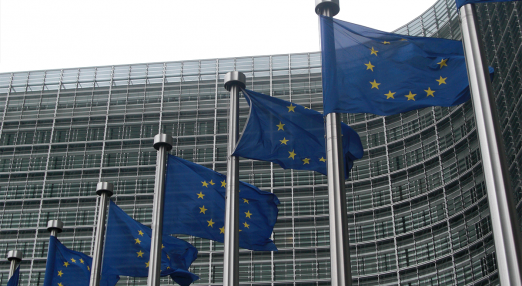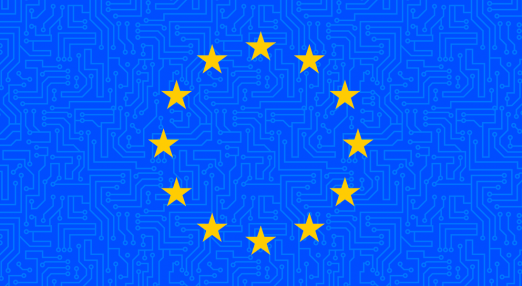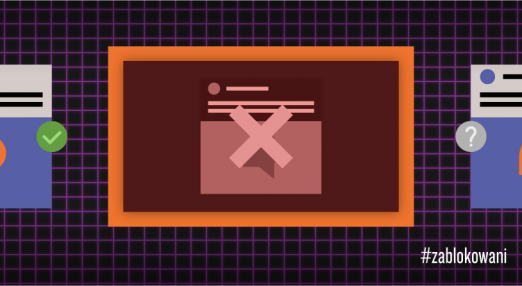Filter resources
-

A losing game: moderating online content fuels Big Tech power
While online platforms have a role to play in dealing with systemic risks, holistic - not techno-centric - approaches are needed to guarantee our safety and free expression, argues Claire Fernandez
Read more
-

Final push needed for a strong ePrivacy Regulation
Today EDRi and 17 civil rights organisations reiterate our support for the much-needed efforts to upgrade Europe’s ePrivacy legislation.
Read more
-

Big Tech platforms are hurting us. 50 organisations urge the EU to #FixAlgorithms
The list of negative consequences of how dominant online platforms shape our experience online is neither short nor trivial. From exploiting users’ vulnerabilities, triggering psychological trauma, depriving people of job opportunities to pushing disturbing content to others, these are just some examples. While members of the European Parliament debate their position on the Digital Services Act (DSA), EDRi’s member Panoptykon Foundation (Poland), together with 49 civil society organisations from all over Europe, including EDRi, Amnesty International, Article 19, European Partnership for Democracy and Electronic Frontier Foundation, urge them to ensure protection from the harms caused by platforms’ algorithms.
Read more
-

Human rights focus missing in the State of the Union 2021 address
On 15 September, the yearly State of the Union 2021 address took place. The address is the event where the European Commission evaluates the preceding year and the Commission President announces key legislation or reactions to crucial international events.
Read more
-

Facebook’s dominance makes it difficult to question the truth
What we as a society understand as true is changeable, and questioning the truth can only be done with a healthy public debate. But the dominance of the platforms that facilitate our public debate makes difficult.
Read more
-

Move fast and break Big Tech’s power
The surveillance-based business model of the dominant technology companies is based on extracting as much personal information and profiling as possible to target individuals, on- and offline. Over time, Big Tech corporations build a frighteningly detailed picture about billions of individuals—and that knowledge directly translates into (market) power.
Read more
-

Can the EU Digital Services Act contest the power of Big Tech’s algorithms?
A progressive report on the Digital Services Act (DSA) adopted by the Committee on Civil Liberties, Justice and Home Affairs (LIBE) in the European Parliament in July is the first major improvement of the draft law presented by the European Commission in December. MEPs expressed support for default protections from tracking and profiling for the purposes of advertising and recommending or ranking content. Now the ball is in the court of the leading committee on internal market and consumer protection (IMCO), which received 1313 pages of amendments to be voted in November. EDRi's member Panoptykon Foundation explores if the Parliament would succeed in adopting a position that will contest the power of dominant online platforms which shape the digital public sphere in line with their commercial interests, at the expense of individuals and societies.
Read more
-

How one word took an entire organization off the air
EDRi's member Bits of Freedom cannot share this blog post with their supporters on Facebook. The reason for this: the word "QAnon" appears in it. This single word was all it took to have the Facebook page of The Hmm and that of its three administrators removed.
Read more
-

Who will not be blocked by Facebook? SIN wins the first court battle
The District Court in Warsaw (Appellate Division) upheld its interim measures ruling from 2019 in which it temporarily prohibited Facebook from removing fan pages, run by the Polish NGO “SIN”, on Facebook and Instagram, as well as from blocking individual posts. This means that – until the case is decided – SIN’s activists may carry out their drugs-related education on the platform without concerns that they will suddenly lose the possibility to communicate with their audience. The decision is now final. EDRi's member Panoptykon Foundation sheds some light on the case and what it means on the broader scale.
Read more
-

The Data Governance Act – between undermining the GDPR and building a Data Commons
Compared to the DSA and the DMA, the DGA has received relatively little attention, both from the digital rights community and, seemingly, from industry stakeholders. So far, the discussion in the EP – where the Internal Market ( IMCO), legal affafirs (JURI) and civil liberties (LIBE) committees have issued opinions – has revealed relatively few clear faultlines.
Read more
-

All hands on deck: What the European Parliament should do about the DSA
After the European Commission’s proposal for a Digital Services Act (DSA) in December 2020, no less than seven committees in the European Parliament are now drafting their reports and opinions on the DSA. In parallel, member states are deliberating about the Council’s position, too. Yet, while the Commission has carefully tried to modernise the ageing rules of the E-Commerce Directive and make them fit for the platform economy, several of the committees’ draft reports propose—deliberately or not—to turn the DSA into a dystopian fundamental rights nightmare.
Read more
-

Joint Civil Society Statement Urges IMCO Committee to Uphold Fundamental Rights in the DSA
On 1 July 2021, along with 6 leading civil society organisations EDRi signed a joint statement urging Members of the Internal Market and Consumer Protection Committee (IMCO) in the European Parliament to uphold fundamental rights and democratic principles in the final Digital Services Act (DSA) regulation.
Read more
